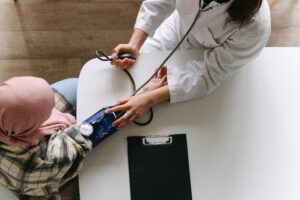An estimated 795,000 Americans have a stroke each year, and about one in four of them have had a previous stroke.
To reduce your risk factors for a stroke, our specialists at HeartCare Associates of Connecticut, LLC, offer some insight into the signs and symptoms you should recognize that warn of a stroke.
Our team also offers guidance to help you lower your risk of having a stroke so you can prevent lifelong complications and premature death.
Understanding strokes
A stroke is a medical emergency that develops when the flow of blood to your brain is obstructed. Blood clots and bleeding in your brain can block the arteries that deliver blood to your brain.
Another common cause of stroke is atherosclerosis, a narrowing of your blood vessels due to a buildup of cholesterol that hardens into plaque.
When your brain doesn’t get the blood it needs to function, nerve cells can begin dying right away, leading to physical and mental disabilities. This can all happen very quickly, and you need to seek medical attention right away to prevent permanent brain damage and death.
Five common symptoms of strokes
While not everyone experiences symptoms of a stroke in the same way, there are five common warning signs that a stroke can cause. These signs include:
Numbness
A stroke can cause sudden numbness and weakness in your arms, legs, or face. Generally, numbness affects only one side of your body.
Blurred vision
Blurred vision is a common side effect of a stroke. You might have trouble seeing out of one or both of your eyes.
Slurred speech
During a stroke, speaking might become difficult and your speech may be slurred. Strokes can also cause sudden confusion.
Clumsiness
Clumsiness can occur because of a stroke. You might suddenly feel dizzy and have trouble walking. You might also stumble due to a loss of balance and a lack of coordination.
Headache
A severe, sudden headache with no identifiable cause can be a symptom of a stroke.
If you’re with someone who’s having a stroke, you may notice these symptoms plus drooping on one side of their face.
Stroke treatments work best when you get medical assistance as soon as possible, generally within three hours of your first symptom. If you or someone you know have symptoms of a stroke, call 911 or get to the nearest hospital.
Tips for preventing a stroke
While not all strokes are preventable, many of the underlying causes of a stroke are. Many people, especially men, end up having a stroke because of poor lifestyle choices like smoking and excessive alcohol use. You might also be at a higher risk for a stroke if you have underlying conditions like:
Making changes to your lifestyle and nutrition now can lower your risk for stroke and improve your overall health. Our team at HeartCare Associates of Connecticut, LLC, can also provide other stroke prevention recommendations like smoking cessation programs, diabetes management services, and routine screenings to evaluate your cardiovascular health.
To learn more about stroke prevention or to schedule a health screening, call the HeartCare Associates of Connecticut, LLC, office nearest you or book a consultation online today.







